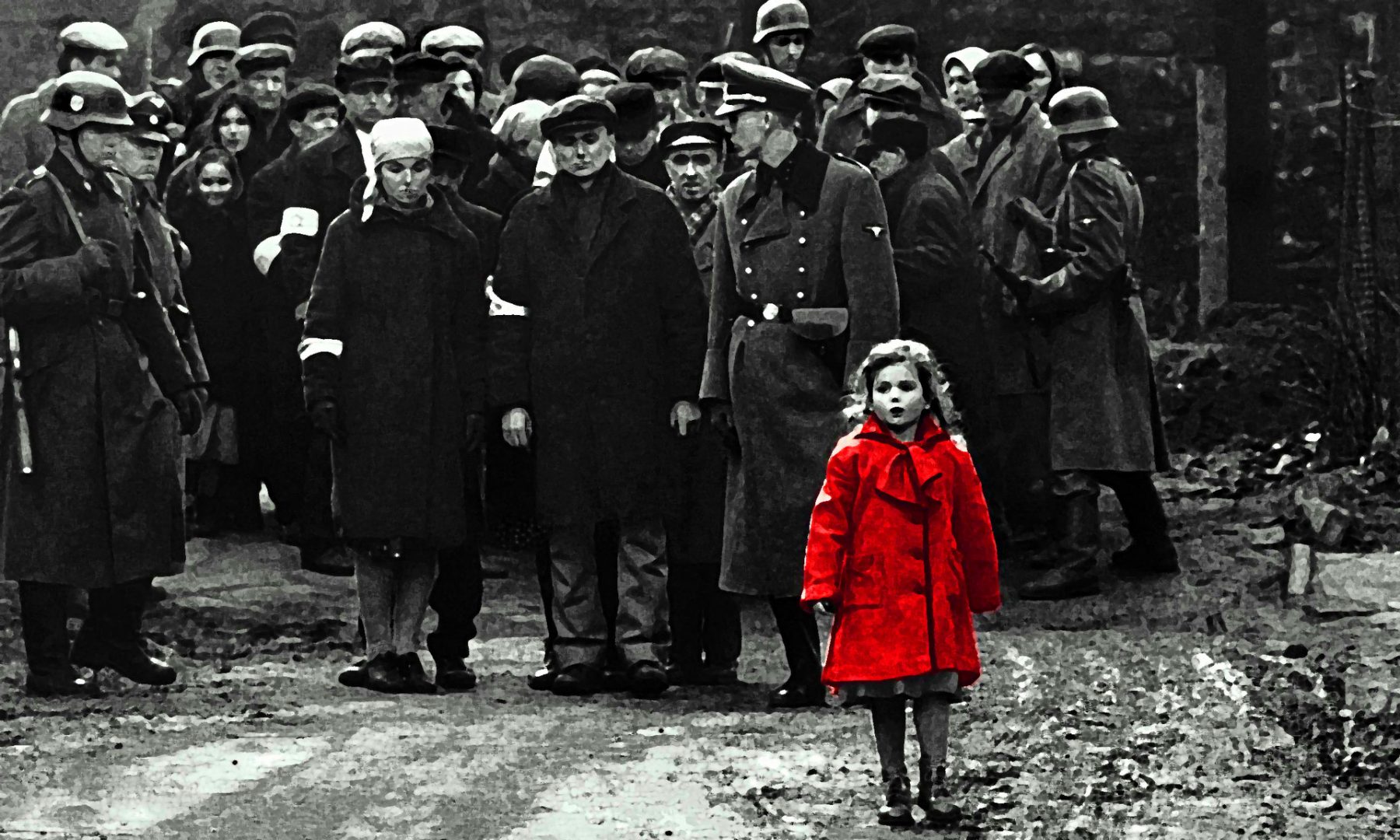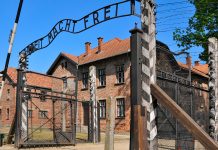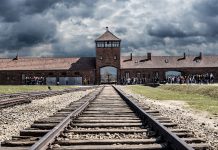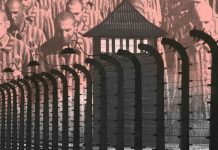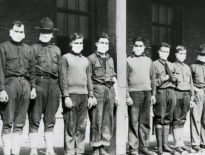He will wipe every tear from their eyes. There will be no more death, or mourning or crying or pain, for the old order of things has passed away. – Revelation 21:4
When Eliezer (Elie) Wiesel was 14 years old, he experienced great sadness when he was taught about the destruction of the Temple in Jerusalem. He wept over this fact while he prayed at night. His greatest endeavour was to find a good Kabbalist in his native Sighet who would introduce him to the secrets of mysticism. It so happened that, among the 10,000 Jews living in the area at the time, he found no one willing to teach him, except Moshe, the synagogue warden. Their conversations enlivened Wiesel’s mind, giving him many opportunities to explore his soul. He was convinced that Moshe was the one to help him enter eternity. So in 1994, when Nazi soldiers ordered the Jews of Wiesel’s community onto trains that would take them to concentration camps, he wept bitterly as he said goodbye to Moshe on the platform. “That’s how it is in the war,”[1] Elie heard someone murmuring behind him.
People listened to him as though he was crazy. Even Elie thought he might have lost it. How can you believe that there could be such a thing in the twentieth century?
Unexpectedly, months later, Moshe returned to the Sighetu Marmaţiei community of Maramureș County with an extremely bizarre story. He told everyone, and “tears, like drops of wax, flowed from his eyes,” that he had miraculously escaped the clutches of death. When the train stopped, the soldiers who had deported the Jews made them dig pits, so that they could be shot and their bodies would fall directly into the pits, like garbage. Wiesel was shot too, but was hit in the leg, so he managed to escape by pretending to be dead and lying on top of the bodies of his fellow travellers. With his eyes emptied of the joy he once had, Moshe went from house to house telling Jews of the horrors he had seen. He was no longer talking about God or Kabbalah, but about a little girl who agonised three days before she died and a father who begged his executioners to be killed first, so that he wouldn’t see his children being shot. People listened to him as though he was crazy. Even Elie thought he might have lost it. How can you believe that there could be such a thing in the twentieth century? At the age of 15, Elie Wiesel found himself living through horrors he had never imagined possible.
Elie Wiesel is one of Auschwitz’s best-known survivors. His memoirs, contained in internationally acclaimed volumes, are considered fundamental to what is known today about the Holocaust. But for a time, Elie Wiesel shared the fate of his good friend Moshe. After being freed from the death camps, he discovered a polite but indifferent world. Convinced by writer François Mauriac to value his personal history as a message against violence, Wiesel agreed to write his memoirs, but found that, “despite overwhelmingly favourable reviews, the book sold poorly. The subject was considered morbid and did not interest anyone.”
In the preface to his autobiography, Night, Wiesel confessed that if any rabbi came up with the idea of mentioning his volume in a sermon, people would criticize him at the end for “burdening children with the weight of Jewish memories.” But over time, things changed, and Wiesel was awarded the Nobel Peace Prize in 1986 and named a “messenger of the world” by the Norwegian committee. Wiesel became a symbol of the fight against violence of all kinds, taking on the task of preventing history from repeating itself due to ignorance. In July 2016, Wiesel passed away, leaving mankind with an appeal to not be indifferent to the suffering of any man, no matter how insignificant he may seem.
Some have accused him of unjustifiably defending Israel towards the end of his life, by legitimising Israeli armed intervention in Gaza. But nothing can contradict the relevance of his public campaigns in favour of the victims of dictatorship in Nicaragua, or apartheid in South Africa, or of his messages raising awareness on the Sudanese genocide, as well as the public recognition of the Armenian genocide of 1915. Wiesel’s legacy remains in the words he engraved in our collective memory through his writing: “The antonym of love is not hatred, but indifference.”
Not even his wife knew she was married to a hero until she discovered a notebook with long lists of names in their attic.
Just a year earlier, in 2015, another bright flame of the fight against indifference went out: Nicholas Winton passed away. Considered to be the ‘Schindler’ of Great Britain, Nicholas Winton had saved no less than 669 children, most of them Jews, from certain death. He organised what was known as ‘Kindertransport’ (transport of children). He placed hundreds of Jewish children who were threatened with deportation in surrogate families. Taking advantage of a British legislative provision that allowed Jewish minors to enter the country, with the sole requirement that they have a sum of money at their disposal, Winton coordinated an entire network of international adoptions while in a hotel in Prague.
According to BBC estimates, Winton organised no less than seven child refugee trains. Some of the children managed to be reunited with their parents who survived the war. Others were left only with memorabilia of their life with their natural parents. Others were left simply with their lives. When he returned to England, Winton did not tell anyone what he had done in Prague. Not even his wife knew she was married to a hero until she discovered a notebook with long lists of names in their house attic. That’s how she found out the whole story, and that’s how the entire world found out. A television show made shortly after this discovery allowed Nicholas Winton to make another, surprising discovery. Based on the notebooks, the filmmakers managed to identify a few dozen of the hundreds of children he had saved and to bring them to the TV studio. Also invited onto set, unknowingly, was Winton. He could not stop a few tears from flowing when he saw how many people got up from their chairs at the invitation of the show host: “I ask all of you who owe their life to Nicholas Winton to stand up.”
Nothing really new under the sun
Despite some deluded voices who still try to deny it, the Holocaust undeniably happened. And, it is undeniably a part of our collective memory. The dark history of Nazism is taught in schools with an appeal to remembrance. However, just as the world began to open up to the discussion on what the Holocaust meant to Europe, communism—that had rescued many of the continent’s countries immediately after World War II—would begin to secretly crush society, in its own way. Once again, the same superior attitude of the Nazis was being manifested, this time not by one nation against another, but by a state system against the people it led. As mankind struggled to learn the lessons of humanity, communism sowed the same indifference to humanity, the same manipulation, and the same cold, clinical, and sinister judgment that Nazism had manifested.
How many had the courage to go against the flow by acting differently than the system wanted? In 2006, the German film “The Lives of Others” told the story of a Stasi officer appointed to listen to and inform on the political loyalty of a playwright whose only crime was being married to an actress that a political minister had fallen head over heels for. The officer was extremely loyal to the system, even though his work did not give him any pleasure. Yet when he discovers the unethical entanglement at the base of his mission, he tries, by all means at his disposal, to save the playwright. And he succeeds. Following this disobeying of his orders, the officer is immediately demoted and spends the last years before the fall of communism in a windowless cellar, steam-opening letters for the German secret police. And although he saved his life, the officer would never know the playwright personally.

For the accuracy with which it portrayed the atmosphere of East Germany, the film was awarded an Oscar for best foreign film in 2006. But its historical accuracy stops there. The officer had not, in fact, existed, and German historian Manfred Wilke has commented that although there were a few German secret police employees who worked against the system from within, they were motivated not by ethics, but by the fact that, one way or another, their power of influence had been limited.[2]
Our temporal distance from such events again seems to detach us from this kind of behaviour. Today, we strongly empathise with those who have suffered because of the dehumanising actions of those who informed on them to evil systems. That is why the story of Vasile Gavrilescu, the Romanian dissident who was spied on by his own wife for 20 years, still moves us and makes an impression on people from all over the world. We look to the past and flatter ourselves with the idea that such things would not happen today. And this is true, in a way. But, if we are honest about our history, we find that in the horrifying details of each tragedy, there are seeds of evil that do not die with the passing of history. One of them is our confusing and complicit silence in the face of other people’s pain.
“How was it possible that men, women, and children were being burned and that the world kept silent? No. All this could not be real,” Elie Wiesel wrote. That is why the writer never remained silent again for the rest of his life. But he also heavily acknowledged that “those who were silent yesterday will be silent tomorrow.” And we see it today. Unlike those who lived through the era of Nazism or the communist period, today’s generations should have inherited an awareness that man is capable of atrocious selfishness and disgusting, irrational violence. However, the present abounds with the hypocrisy of obliviousness and indifference.
Like the officers who were very polite to those close to them, loving to their families, lovers of music and art, but terribly inhumane to the enemies of their regime, today’s public consumes its kindness, empathy and solidarity with those “in the family” and creates an impenetrable wall of backs turned on the vulnerable.
Drowned in a sea of meaningless information circulating in the press, the general public does not notice that the peaceful civilisation to which it belongs does not really promote peace. We close our eyes again, even more guilty than in the past, in the face of persecution in “unimportant” places. See North Africa, the Middle East, and North Korea. And so we reveal once again, as the writer François Mauriac said, that “we do not know the value of even a single drop of blood, of a single tear.” Because if we did, we would know that their price is universal and permanent. Or, as Christians, we would remember that the only one who has the right to put a price on life is the One who gave it. And that the only time Jesus weighed lives comparatively, He did so to put our lives above His own.
Closing thought
“Help each other. Hell doesn’t last forever.” This is what the barracks chief told Elie Wiesel and his fellow detainees, and Elie considered those to be the first human words he had heard since his deportation to the camp. That’s right, isn’t it? If we analyse these words in the context of this discussion, we see that they are true: hell does not last forever. But it lasts as long as we make it last.
Alina Kartman is a senior editor at ST Network and Semnele timpului.












